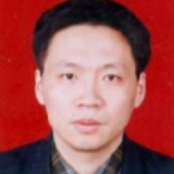
Luqun Li
Work place: Department of Computer Science & Technology of Shanghai Normal University, Shanghai, China
E-mail: liluqun@gmail.com
Website:
Research Interests: Computer systems and computational processes, Computer Networks
Biography
Luqun Li is a professor in Computer Department of Shanghai Normal University. His main research interests are computer networks, wireless communication.
Author Articles
Modeling and Analysis on a DTN Based Wireless Sensor Network Topology Control
By Luqun Li
DOI: https://doi.org/10.5815/ijcnis.2009.01.05, Pub. Date: 8 Oct. 2009
Wireless sensor networks (WSNs) have unlimited and extensive potential application in different areas. Due to WSNs’ work environments and nodes behavior, intermitted network connection may occur frequently, which lead packets delay and lose in the process of data transmission. Most related works on WSNs, seldom consider how to address the issue of intermitted network connection in WSNs. To the best of our knowledge, few papers did related work on how to utilize intermitted network connection to control the topology of WSNs and save the battery of nodes in WSNs. Although intermitted network connection in WSNs is not a good phenomenon, when it occurs, it indeed can keep some nodes in power saving mode. If we can intelligently control WSNs network topology and get intermitted network connection during the intervals of transmission, we will find another way to save the nodes energy to the maximum extent. Based on these ideas, we import the idea of Delay Tolerant Network (DTN) protocol to address the issue. In this paper, first we give the modeling and analysis on node behaviors in DTN WSNs, then we present the end to end performance analysis in DTN WSNs to get the parameters of optimistic hops, maximum hops and each node’s neighbor number, after that we give some basic rules on DTN parameters selection for DTN based WSNs topology control. Finally, we do a related simulation by our DTN based WSNs topology control approach and HER routing algorithm; simulation results show that our approach and algorithm gained better performance in WSN life span, nodes energy equilibrium consumption than DADC.
[...] Read more.Other Articles
Subscribe to receive issue release notifications and newsletters from MECS Press journals